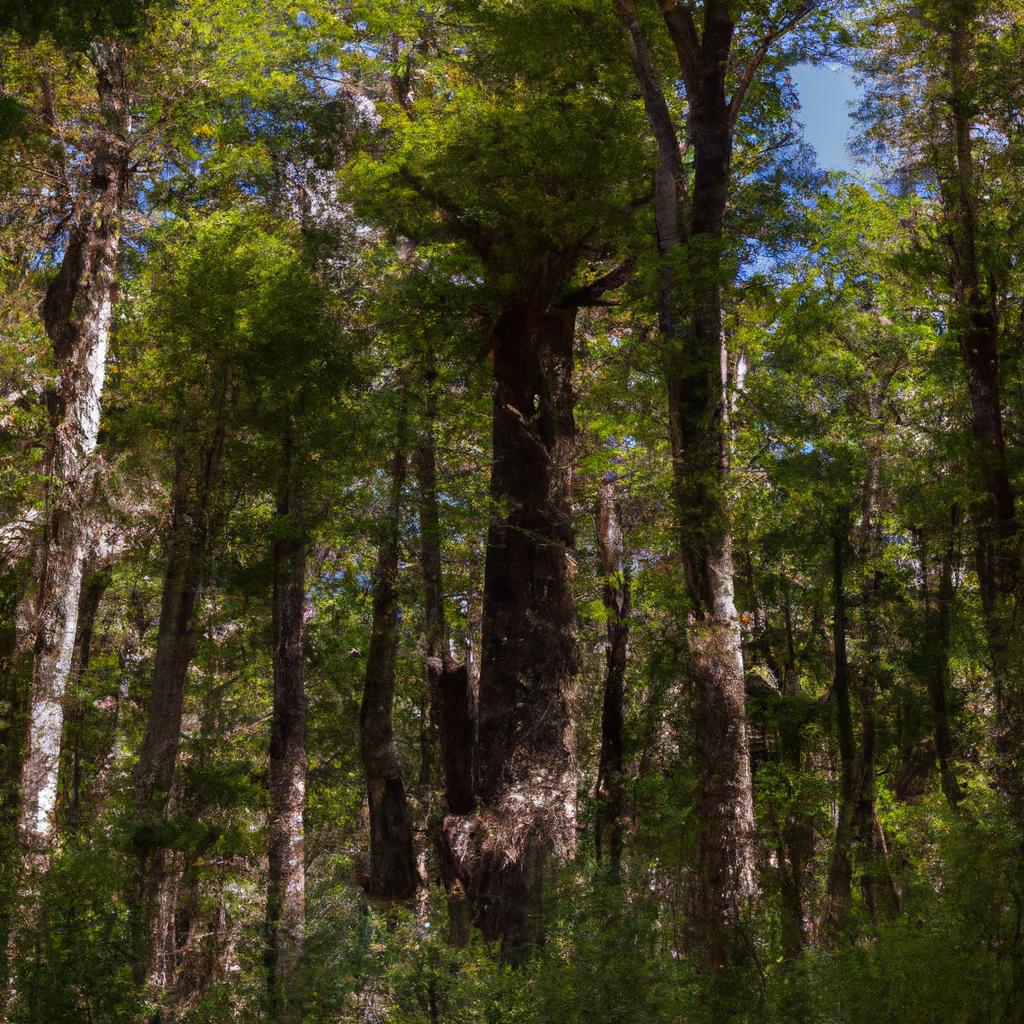Forests are vital to life on Earth, providing us with oxygen, regulating the climate, and serving as habitats for wildlife. In Argentina, the rich tapestry of forests covers almost 30% of the country’s land area, making it a treasure trove of biodiversity in South America. The diverse range of flora and fauna found within these forests makes Argentina an ecologically significant region.
Types of Forests Found in Argentina
Argentina is home to a variety of forests, each with its own unique ecology and species. Let’s delve into the different types of forests found in this remarkable country:
Tropical and Subtropical Forests
Tropical and subtropical forests can be found in the northern regions of Argentina, particularly in provinces like Misiones, Salta, and Jujuy. These forests are characterized by high rainfall and humidity, creating a dense canopy of life. Notable species found in these forests include yerba mate, cedro, and palo rosa. Rich in biodiversity, these forests are home to monkeys, jaguars, and tapirs.
Deciduous Forests
Moving towards the central and eastern regions of Argentina, you’ll encounter deciduous forests. These forests undergo seasonal changes in leaf color and shedding, creating a beautiful spectacle. The prominent species found in these forests are quebracho, algarrobo, and lapacho. Here, you’ll find an array of wildlife, including deer, armadillos, and parrots.
Andean Forests
Heading west, you’ll come across the Andean forests, nestled along the majestic Andes mountain range. These forests endure harsh climates and high altitudes, making them a true testament to nature’s resilience. Within these forests, you’ll encounter the cypress, lenga, and araucaria species. Exploring these regions, you might glimpse condors, pumas, and guanacos.
Every type of forest in Argentina plays a crucial role in the country’s ecosystem and economy. They provide essential resources like timber, fuelwood, and medicinal plants, while supporting industries such as tourism and agriculture. Protecting these forests is vital for the sustainability of their unique biodiversity.
Threats to Forests in Argentina
Argentina’s forests face several threats that endanger their existence and the species that call them home. Here are some of the main threats:
Deforestation
The most significant threat to Argentina’s forests is deforestation, driven by the clearing of land for agriculture and urban development. This destructive practice leads to the loss of large forested areas, resulting in soil erosion, increased carbon emissions, and the depletion of wildlife habitats.
Illegal Logging
Illegal logging poses another major threat to Argentina’s forests. This activity involves the unauthorized removal of trees, leading to the depletion of forest resources and the loss of biodiversity. Illegal logging also contributes to deforestation, soil degradation, and climate change.
Forest Fires
Forest fires, whether caused naturally or by human activities like land clearing, can destroy vast expanses of forests. These fires result in the loss of habitats, the extinction of species, and contribute to soil erosion and climate change.
Mining and Oil Exploration
Mining and oil exploration activities can have a significant impact on Argentina’s forests, causing deforestation, soil degradation, and the loss of wildlife habitats. These activities can also pollute water sources and contribute to climate change.
To address these threats, the Argentine government has implemented various measures, including the establishment of national parks, the creation of protected areas, and the implementation of laws and regulations to combat illegal activities. NGOs and other stakeholders also play a crucial role in conserving these valuable ecosystems. However, there is still much work to be done to ensure the long-term survival of Argentina’s forests.
Forest Conservation Efforts in Argentina
Argentina has made significant strides in recent years to conserve its forests. The government has implemented policies and programs aimed at promoting sustainable forest management and reducing deforestation rates.
Government Policies and Programs
One of the most important policies is the National Forest Law, enacted in 2007. This law mandates that all landowners maintain a minimum of 30% forest cover on their properties and prohibits the conversion of natural forests into other land uses. Additionally, the Forests for Life program provides financial incentives to landowners committed to conserving their forests. The Forests, Environment, and Natural Resources Secretariat (SAyDS) oversees the implementation of these policies, working closely with provincial governments and stakeholders to ensure sustainable forest management and protection against illegal activities.
Role of NGOs and Other Stakeholders
NGOs and other stakeholders have played a vital role in promoting forest conservation in Argentina. For instance, the Wildlife Conservation Society (WCS) collaborates with local communities to establish community-managed protected areas in the Chaco region. These protected areas not only conserve biodiversity but also provide economic benefits through sustainable ecotourism. The private sector and indigenous communities are also actively involved in forest conservation efforts, with many companies committing to sourcing products from sustainably managed forests and indigenous communities establishing their protected areas.
Successful Forest Conservation Projects
Argentina has witnessed the successful implementation of various forest conservation projects. The Yungas Biosphere Reserve, located in the northwestern region, protects diverse ecosystems like cloud forests and montane forests. Managed through a partnership between the government, NGOs, and local communities, this reserve serves as a model for sustainable forest management. Another notable project is the Sustainable Forest Management Project, implemented by the Inter-American Development Bank (IDB) in the Province of Misiones. This project focuses on promoting sustainable forest management practices and reducing deforestation rates through community-led initiatives and technical assistance.
While Argentina has made significant progress in forest conservation, ongoing efforts by the government, NGOs, and other stakeholders are necessary to safeguard these invaluable ecosystems for future generations.
Economic Benefits of Forests in Argentina
Forests in Argentina offer numerous economic benefits, such as employment opportunities, timber production, and ecosystem services. The forestry industry plays a pivotal role in Argentina’s economy, employing over 100,000 people and contributing significantly to revenue generation.
Industries that Depend on Forests
The forestry industry heavily relies on forests for the production of wood, paper, and pulp, generating billions of dollars annually. This industry also creates employment opportunities, particularly in rural areas where jobs are scarce.
Moreover, Argentina’s forests provide crucial ecosystem services, including watershed protection, soil conservation, and carbon sequestration. These services hold substantial economic value, and their degradation or loss can have severe economic consequences.
Impact of Forest Degradation on the Economy
Forest degradation and deforestation have adverse effects on the economy and society. Forest degradation reduces the productivity of forest lands, leading to lower yields and decreased economic returns. Deforestation causes soil erosion, loss of biodiversity, and climate change, impacting human health and livelihoods. Furthermore, deforestation affects Argentina’s water resources, essential for agriculture, energy production, and human consumption. The loss of forests can result in soil erosion, sedimentation, and reduced water availability, negatively impacting water quality and quantity.
In conclusion, forests in Argentina offer significant economic benefits, including employment, timber production, and ecosystem services. The forestry industry is a crucial contributor to the country’s economy. However, forest degradation and deforestation pose significant threats, necessitating the protection and conservation of Argentina’s forests for their ecological, social, and economic value.
Join us at TooLacks in our endeavor to raise awareness about the importance of forests. Let’s take action to protect and preserve these invaluable natural resources, ensuring a sustainable future for our planet and the generations to come.



